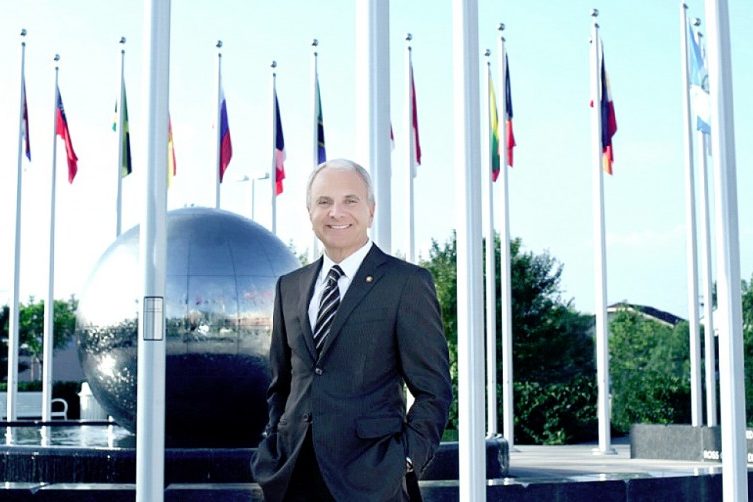The International Women’s Day is their day, and the D.I.V.E. of Los Angeles celebrated it with an exquisite dinner at the Skylight Gardens in Westwood, hosted by Miranda Barone. On this special occasion, the members’ monthly meeting was dedicated to the memory of a brilliant Italian woman: Margherita Hack (1922-2013).
Known as the “lady of the stars” – with reference to her research on cepheids, a type of variable stars -, the Italian astrophysicist and prolific author became very popular at home and abroad thanks to her ability to communicate science to the general public. She entered the academia when it was still dominated by men, and was the first female director of the Trieste Astronomical Observatory from 1964 to 1987.
Her commitment to promoting Italy within the international scientific community and to raising funds for research contributed, in particular, to the development of the small city of Trieste into a well-known center for astrophysical studies.
In her honor, a newly discovered asteroid was named after her in 1995.
The evening was opened by D.I.V.E. president Lucia Peretti, sharing the Women’s Day wishes extended by Pope Francis and the Italian President of the Republic Sergio Mattarella. Then she gave the floor to guest of honor Elena Pierpaoli, USC Associate Professor of Physics and Astronomy.
Prof. Pierpaoli’s passion for astrophysics and cosmology came about gradually, but the influence of her mother – a professor of physics – was definitely a key factor: “She was very demanding and never managed to teach me anything. Nevertheless, somehow she passed on to me her interest in science. I was very good in school, and decided to study Physics at the University of Milan. Despite the prestige of the local Department of Experimental Particle Physics, I couldn’t really see myself working at CERN or in similar laboratories.”
Elena Pierpaoli wanted to look at the stars. After graduating with honors in 1994 with a final dissertation in theoretical physics, she followed her instinct by obtaining a PhD in Astrophysics from the International School for Advanced Studies in Trieste (1998). Yet the doctoral experience wasn’t as good as she had expected and, for the first time in her life, she felt ready to pursue a carrier abroad.
“In the beginning, I wasn’t particularly attracted by the United States, so I worked at the University of British Columbia in Vancouver, Canada, for a couple of years. Then my husband was offered a job in New York, and we moved there. When I applied for a research position at Princeton University in 2001, I was pregnant and very brave – or completely crazy – and I got the job.”
Prof. Pierpaoli received grants and fellowships to support her work at Princeton for 5 years and then at Caltech in Pasadena, where she became Visiting Faculty in 2006. In the same year, she also joined USC as an Assistant Professor at first and now as an Associate of Cosmology and Theoretical Astrophysics.
Is she still attached to Italy? “I’ve never wanted to leave it, and for a long time I thought I would have returned, sooner or later. The truth is that at a certain point, Italy didn’t offer me anything better or even equal to what I had achieved in the United States.
All the same, I do feel deeply grateful and proud of my Italian public education, whose level was high enough to prepare me for a career in some of the best institutes of North America. This is why, when I have had the opportunity, I gladly hired Italian postdoc fellows in my international research group. Also, I enjoyed spending my first sabbatical year in Trieste, collaborating with esteemed Italian colleagues.”
Elena Pierpaoli has eventually adapted to the American work environment, and her advice to young Italian science lovers, who wish to follow in her footsteps, is to train not only their mental and technical skills but also their ability to promote themselves and face strong competition.
At present, she works on two different projects. One of them was launched when she was still a PhD student in Italy and involves the measurement by the European Planck satellite of the “cosmic microwave background” – a leftover radiation from the Big Bang, which fills the Universe and can help understand its history. Her second field of study is relating to large galaxy clusters.
Invited by the D.I.V.E. to lecture on Margherita Hack’s personality and outstanding accomplishments, Prof. Pierpaoli underlined some fascinating and perhaps less known aspects that shed light on both the scientist and the woman. “Margherita was vegetarian, had lots of cats, and suffered from insomnia even in retirement. We didn’t share the same field of research, but we lived on the same street in Trieste,” she recalls.
Actually, it looks like they have much more than that in common: talent, determination, and love for their job, but most of all the capacity to convey these feelings and inspire other fellow women.





























